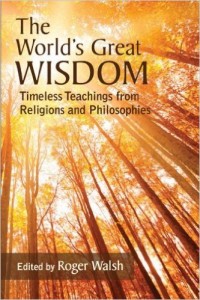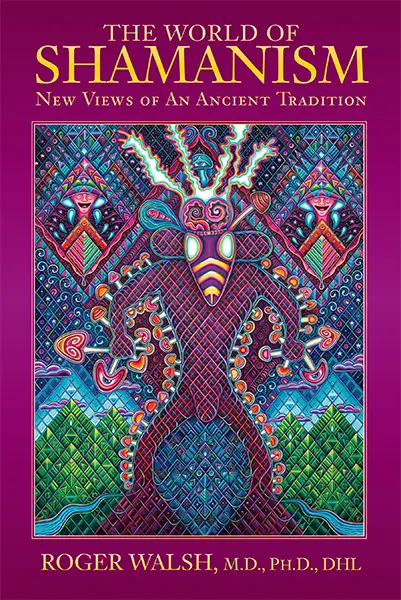Roger’s new book, The World of Shamanism
Second Edition has been published
The first book to illuminate shamanism with findings from contemporary psychology, anthropology, medicine, consciousness studies, and religious studies. The book scope encompasses dozens of cultures and thousands of years, and explores topics as diverse as healing, states of consciousness, death-rebirth, wounded healers, spiritual emergencies, the hero’s journey, psychedelics, and much more.
The book honors unique cultures and traditions, yet reveals many common patterns, practices, experiences, and realizations. It explores controversial topics— such as shamans’ psychological health, their effectiveness, their trickster behavior, and the nature of their realizations— with a rare combination of scientific rigor and compassionate sensitivity. It offers groundbreaking ideas on multiple topics, such as the psychological health and healing of shamans, varieties of shamanic states of consciousness, comparisons with the states of other traditions, spiritual emergencies, and much more.
With its exceptional scope, scholarship, and precision, “The World of Shamanism” reads remarkably clear.
Deep Transformation
Inspired by the recent publishing of the second edition of his book, The World of Shamanism: New Views of an Ancient Tradition, Deep Transformation podcast co-host Roger Walsh converses with John Dupuy as the guest of the podcast. Roger discusses how he first discovered a vast inner world he hadn’t been aware of, how he was drawn to write a book about shamanism, and what he finds most intriguing about shamanism—our most ancient and enduring spiritual tradition. Roger provides us with a brilliant, big picture perspective, pointing out that at the heart of shamanism (and every great world tradition) are psychospiritual technologies—actual practices—that lead us to the doorway of the Great Mystery, and that service is the culmination of each tradition, both as a means to and an expression of one’s realization—recorded June 27, 2024.
New article available: A Little Wisdom Can Be a Dangerous Thing: The Traps and Seductions of Wisdom. Roger Walsh. JTP Volume 54(2), 2022.
New interview available on Buddha at the Gas Pump: Understanding Meditation, Maturity, Enlightenment, and Their Traps.
On YouTube:
Buddha at the Gas Pump: Understanding Meditation, Maturity, Enlightenment, and Their Traps On Apple Podcasts
New Interview available: Every Moment Learning: Transforming Life into a Continuous Learning Experience
New Interview available: Ethical Understanding, Psychological Maturity, and Contemplative Practice
New Interview available: What Does It Mean To Live a Good Life?
A dialogue with Thomas Steininger, editor of Evolve magazine
Sacred Service: The Yoga of Transforming Work, Service
 The World’s Great Wisdom: Timeless Teachings from Religions and Philosophies
The World’s Great Wisdom: Timeless Teachings from Religions and Philosophies
by Roger Walsh (Editor). Published by State University of New York Press
buy from an Independent bookstore (using store locator)
buy from Amazon.com
Jump to: Table of Contents
DESCRIPTION
What is wisdom and how is it cultivated? These are among the most important questions we can ask, but questions that have been routinely ignored in modern times. In the twentieth century, the search for wisdom was replaced by a search for knowledge as science and technology promised answers to life’s ills. However, along with scientific achievements came disasters, particularly the devastation of the planet through the accelerating use of modern technology. In an era drenched in data, a desire for wisdom has been reborn. Where can we go to learn about wisdom? The answer is clear: to the world’s great religions and their accompanying philosophies and psychologies. The World’s Great Wisdom makes these treasuries available. Practitioners from each of the great religions—as well as from Western philosophy and contemporary research—provide summaries of their traditions’ understandings of wisdom, the means for cultivating it, and its implications for the modern world. This book offers distillations of the world’s accumulated wisdom—ancient and modern, religious and scientific, philosophical and psychological. It is a unique resource that for the first time in history brings together our collective understanding of wisdom and the ways to develop it.

